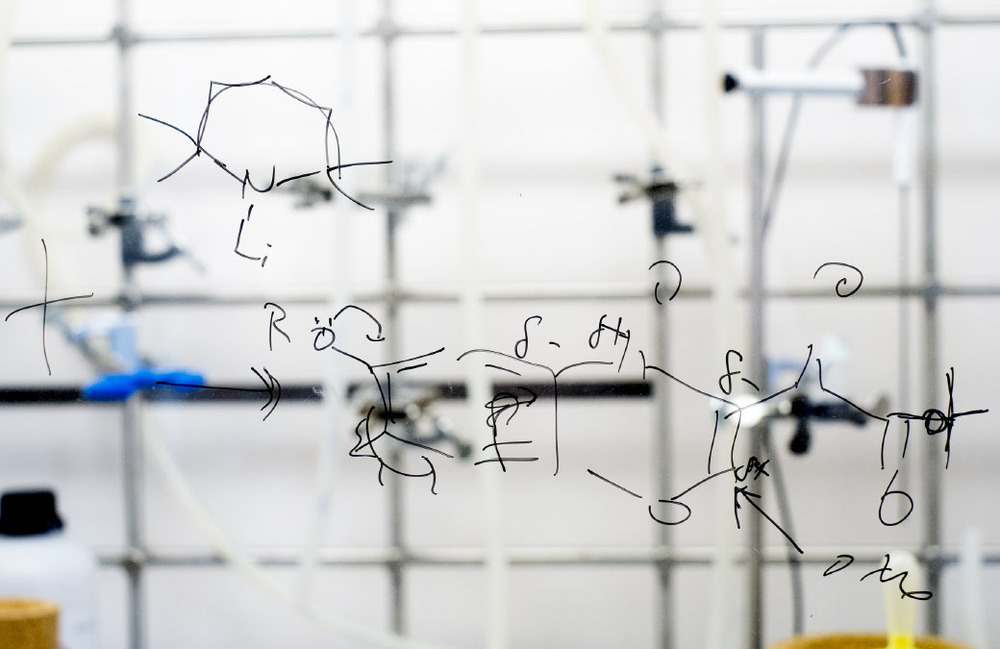
Weill Cornell Medicine, Memorial Sloan Kettering Cancer Center, and The Rockefeller University have established a new drug discovery company. Called Bridge Medicines, the initiative builds upon the work of the independent, nonprofit Tri-Institutional Therapeutics Discovery Institute (Tri-I TDI), which has some fifty early-stage drug discovery projects in progress in such areas as infectious disease, oncology, and neuropsychiatry.
Launched in collaboration with Takeda Pharmaceutical Company Ltd. and venture capital firms Bay City Capital and Deerfield Management, Bridge Medicines completes an unbroken, fully funded, and professionally staffed path from concept to drug candidate. Tri-I TDI projects will be able to graduate to Bridge Medicines, where they’ll receive financial, operational, and managerial support to move seamlessly from a proof-of-concept study to a human clinical trial. "The launch of Bridge Medicines is a truly exciting development in New York’s biotechnology space," says Michael Foley, PhD, Sanders Director of the Tri-I TDI. "We’re tapping into the distinguished talent at Sloan Kettering, Rockefeller, and Weill Cornell Medicine and offering entrepreneurs access to support what’s next in bio-pharmaceuticals. Bridge Medicines will enable us to advance promising projects farther down the development pipeline, providing new therapies to patients as quickly as possible."
Any project that enters Bridge Medicines will receive funding to develop an investigational new drug (IND) application and submit it to the FDA. Once a project receives IND certification, Bridge Medicines can establish and fund New York-based bio-pharmaceutical companies to manage individual projects, advancing them to clinical trials. These companies would have the autonomy to chart their own paths, which could include raising additional funds to support research on related targets, or selling or licensing the intellectual property to another bio-pharmaceutical company to complete the development process. Principal investigators could continue on as equity stakeholders in the new companies, or opt out of Bridge Medicines and pursue other means of developing their discoveries. "Bridge Medicines doesn’t want to hold onto projects," Foley says. "It wants to spend one or two years in further development, adding more value, further de-risking, and meeting the needs of patients to improve the odds of success for new therapeutics while simultaneously building a vibrant biotechnology sector in New York City."
Two Campuses to Study Cancer Metabolism
A collaboration between WCM and the College of Engineering on the Ithaca campus aims to understand the mechanisms behind how breast cancer develops, spreads, and responds to therapy. Established with a grant from the National Cancer Institute that could total $9.3 million over five years, the Center on the Physics of Cancer Metabolism will harness the strengths of interdisciplinary research groups on both campuses. The project is led by Claudia Fischbach-Teschl, Ph.D., associate professor of biomedical engineering at Cornell, and Lewis Cantley, Ph.D. ’75, the Meyer Director of the Sandra and Edward Meyer Cancer Center at WCM. Over the next five years, it will focus on three areas: the mechanisms that regulate tumor metabolism and how obesity affects the process; how membrane-surrounded vesicles produced by tumor cells affect their behavior; and the physical and metabolic constraints influencing tumor cell migration. "There’s an opportunity to understand how to prevent metastasis from occurring," Cantley says, "but even if we don’t cure cancer, we’re going to learn a lot from each other."
